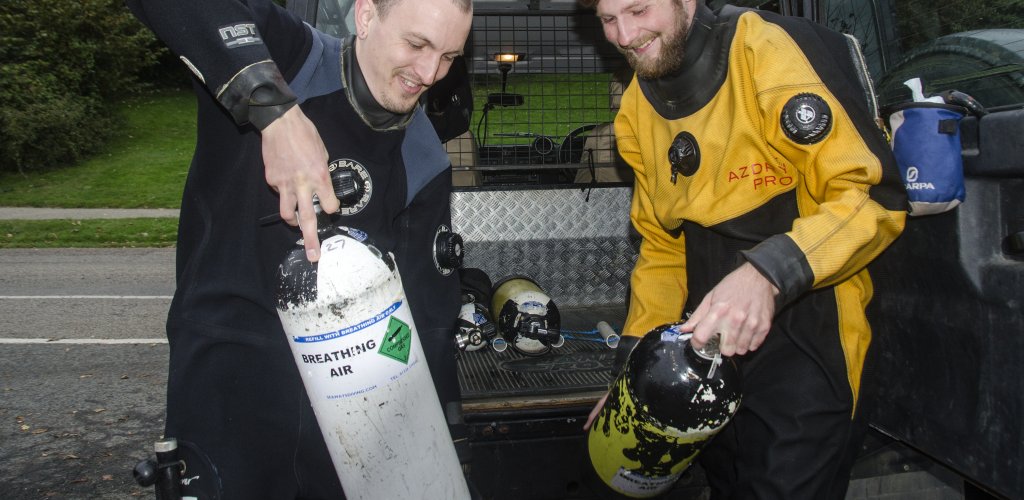
The International Standards Organisation (ISO) has recognised BSAC's proposal for a risk-based approach to cylinder testing, meaning that for recreational divers*, the current visual examination period is likely to remain at 2.5 years. Cylinder testing update.
This positive outcome has come following months of lobbying by the UK recreational diving sector against a new draft International Standard, which had an interval of 12 months for internal visual examinations of cylinders, rather than the 2.5 years currently required in the UK.
Last week, BSAC attended several meetings with key bodies on behalf of UK divers to propose a risk-based approach to cylinder testing. BSAC, along with other UK diving agencies and trade bodies, believe that an increase to annual visual examination is disproportionate and would have a negative impact on the participation in our sport.
Gavin Anthony, a technical adviser for BSAC, attended a recent ISO standard meeting in London where his change to a risk-based approach to cylinder testing was accepted, changing the draft International Standard.
At a subsequent meeting with the Department for Transport, organised by the HSE, and attended by parties affected by the standard, including BSAC Chair Alex Warzynski and Gavin Anthony (both attending on behalf of UK recreational diving), IDEST, the MOD, the Police, scientific divers, VCA Dangerous Goods Office and the offshore commercial diving industry, the wording in the draft ISO standard for the risk based approach for cylinder testing in the UK was unanimously adopted, subject to ratification of the standard at international level.
This means that subject to further consultation, annual visual cylinder testing is not likely to apply to recreational divers in the UK. BSAC advise that cylinders will continue to be inspected and tested by an independently audited and approved test centre, under the current HSE DVIS11 guidelines.
BSAC Chair Alex Warzynski welcomed the unanimous acceptance of the risk-based proposal.
“This is the right result for UK diving. By adopting a pragmatic approach to the standard, it means we can ensure safety standards are maintained without putting unnecessary obstacles to the pursuit and enjoyment of our sport.”
Going forward, BSAC will now produce the risk assessment for cylinders used by recreational divers in the UK, based on historical data showing the current 2.5 year interval is a socially acceptable risk and appropriate.
BSAC has also offered to take the lead in producing the various risk assessment templates for all the diving sectors in the UK. Once produced and agreed by each sector, it is expected that these would be the basis of enforcement by the DfT and the HSE, particularly as some cylinders under more arduous use may require more frequent inspection. The risk based approach looks at the use of a cylinder and applies appropriate inspection intervals up to the maximum 2.5 years permitted by the ISO standard.
The ISO standard is expected to be published in the UK by the end of 2017.
*Note: clarification on the term 'recreational'
The recreational sector of the diving industry is where diving is undertaken as a pastime, for example BSAC clubs, or teaching recreational diving for reward, for example dive shops, schools and independent paid instructors, who operate under the Diving at Work regulations (DWR) Recreational Approved Code Of Practice (ACOP). Diving at work conducted under any other DWR ACOP is not recreational.



